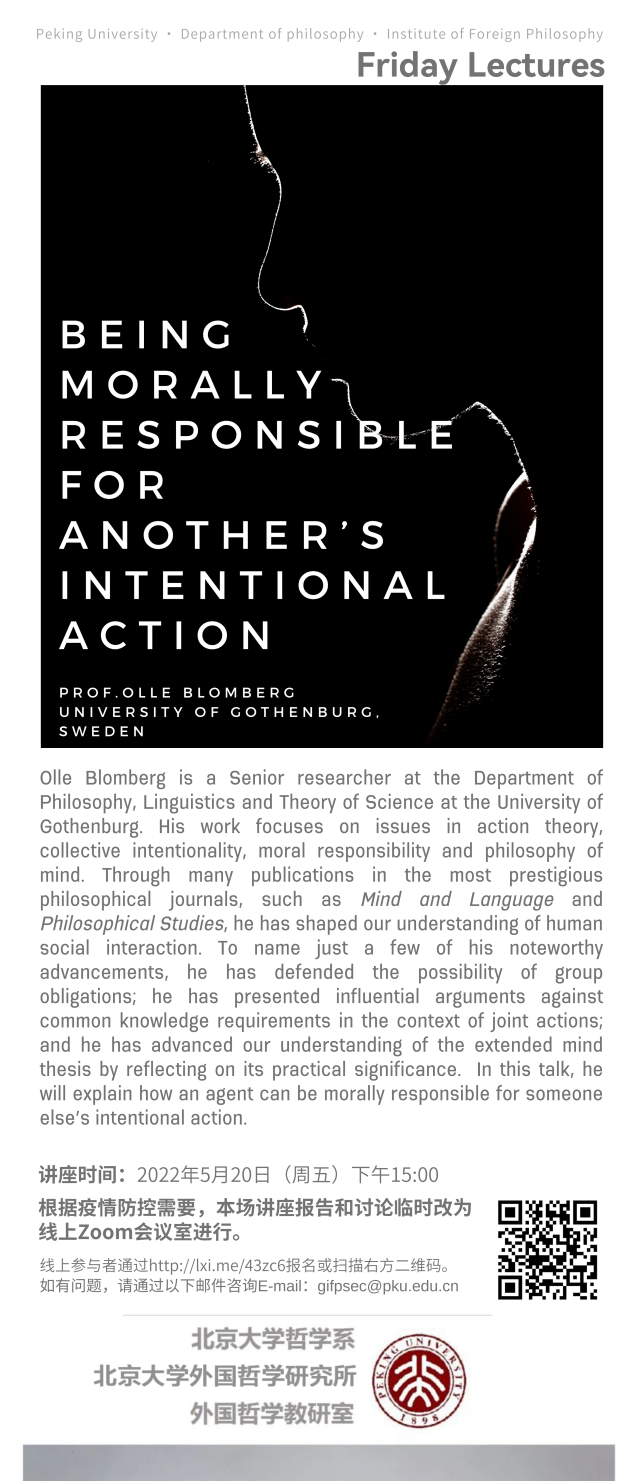5.20: 周五哲坛 | Being Morally Responsible for Another’s Intentional Action

主讲人简介
Olle Blomberg
Olle Blomberg is a Senior researcher at the Department of Philosophy, Linguistics and Theory of Science at the University of Gothenburg. His work focuses on issues in action theory, collective intentionality, moral responsibility and philosophy of mind. Through many publications in the most prestigious philosophical journals, such as Mind and Language and Philosophical Studies, he has shaped our understanding of human social interaction. To name just a few of his noteworthy advancements, he has defended the possibility of group obligations; he has presented influential arguments against common knowledge requirements in the context of joint actions; and he has advanced our understanding of the extended mind thesis by reflecting on its practical significance. In this talk, he will explain how an agent can be morally responsible for someone else’s intentional action.
讲座信息
● 讲座题目:
Being Morally Responsible for Another’s Intentional Action
● 讲座时间:
2022年5月20日(周五)下午15:00
● 讲座方式:
所有报告和讨论将在线上Zoom会议室进行。
● 线上参与:
根据疫情防控需要,请大家线上参与。线上参与者请通过http://lxi.me/43zc6报名或扫描下面二维码。如有问题,请通过以下邮件咨询E-mail : gifpsec@pku.edu.cn

讲座简介
I argue that, contrary to what many philosophers have claimed, an agent can be morally responsible for another agent’s intentional action if he intentionally created the conditions for it. While some acknowledge that an agent can be responsible for the outcome that the other agent performs an action, I argue that the technical distinction between responsibility for actions and responsibility for outcomes lacks a point in the context of our practice of holding each other responsible for what we do. In other words, an agent can be morally responsible for another’s action in the relevantly same way as she is responsible for her own action. Furthermore, she can be this without the other agent having diminished agency or responsibility with respect to the action. This means that socially mediated moral responsibility does not require that an agent has authorized another to act on her behalf, as some have thought.



